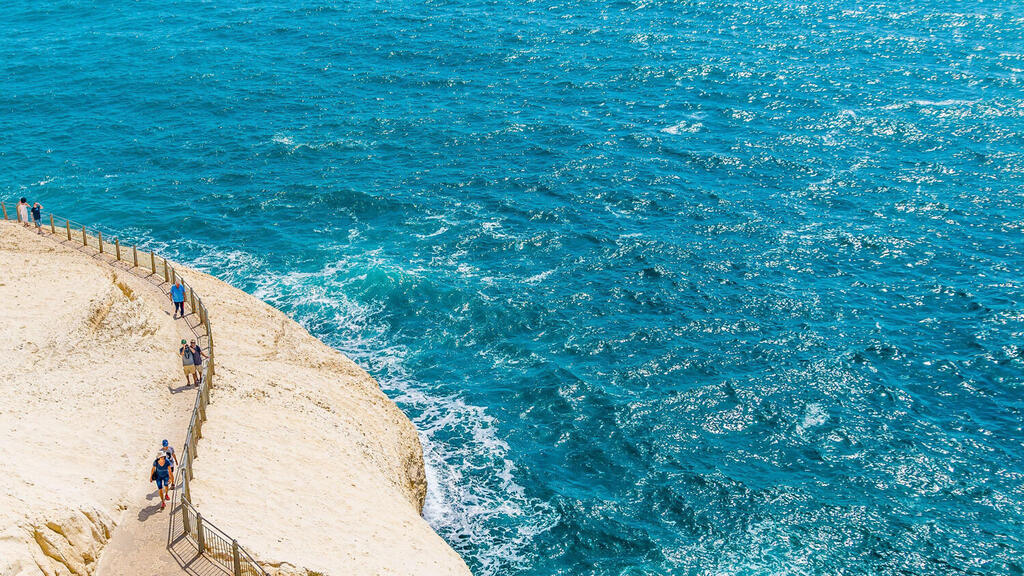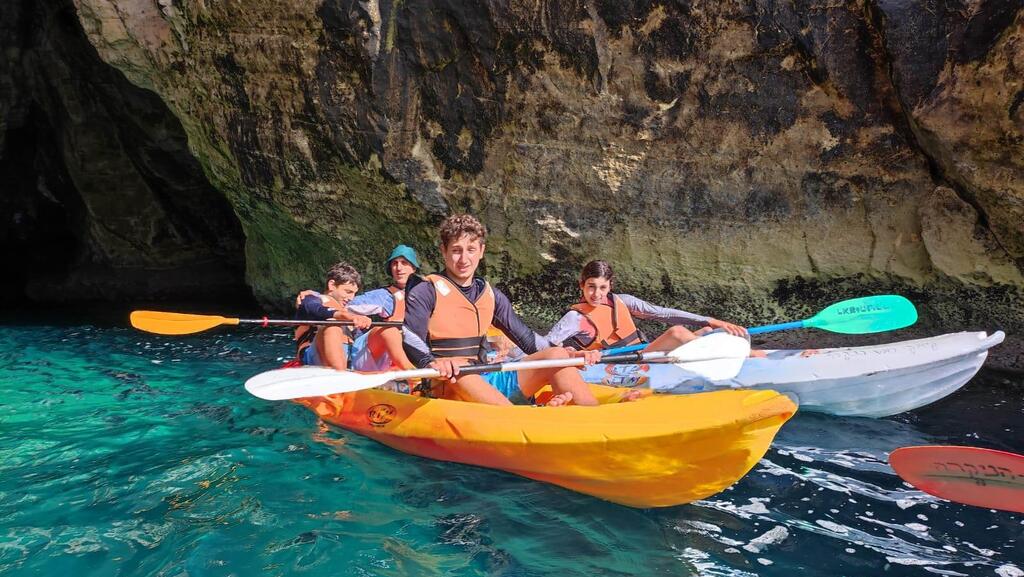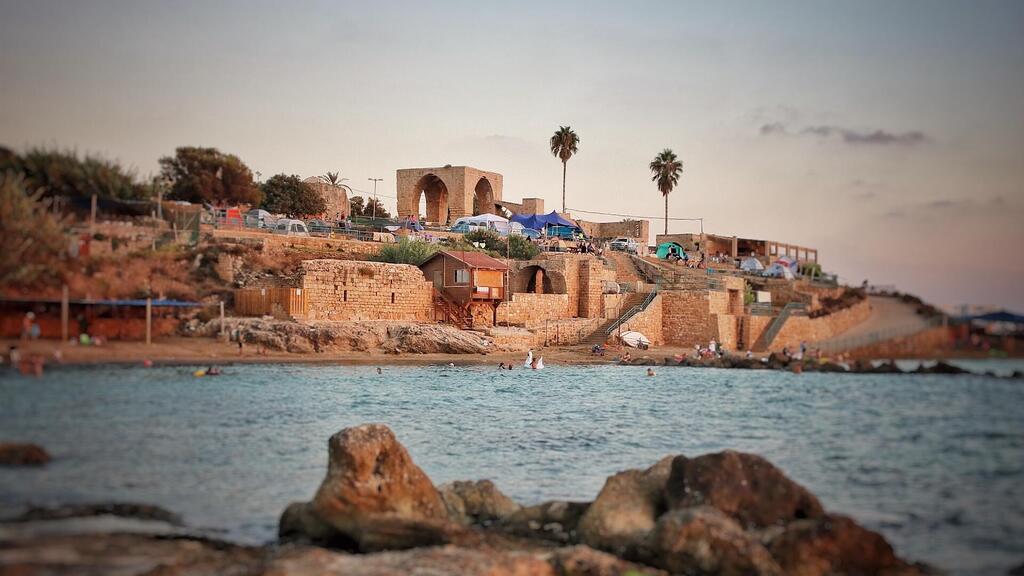The Rosh Hanikra-Achziv Marine Nature Reserve was officially inaugurated on Tuesday in a festive ceremony at the heart of the sea and is now open to visitors.
Other stories:
The largest marine nature reserve in Israel, with an impressive recently declared 100,062 dunams, is now also the first and only tourist marine nature reserve on the Israeli Mediterranean coast, featuring authorized snorkeling, diving clubs and four bathing beaches.
8 View gallery
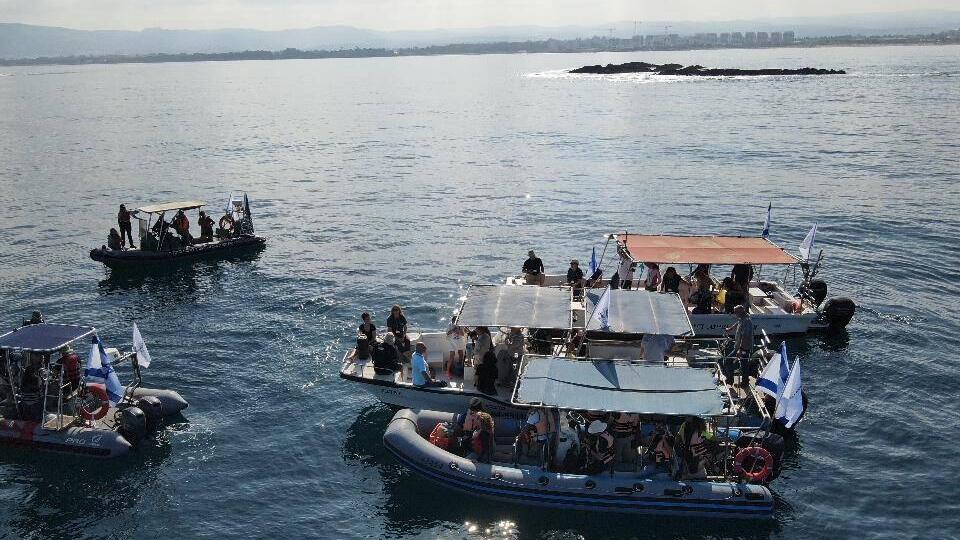

Rosh Hanikra-Achziv Marine Nature Reserve
(Photo: Rotem Sade, Israel Nature and Parks Authority)
The reserve stretches along approximately 7 kilometers of shoreline from the Israel-Lebanon border in the north to the city of Nahariya in the south, and extends about 15 kilometers west from the coastline into the sea. Three rivers flow into this area of the sea - the Kziv, Betzet, and Sha'al, and there are several islands spread throughout the water.
The reserve protects the underwater life, as well as the flora and fauna on the coastline, areas with unique kurkar ridges, islands, underwater rocky terrain, and even a deep underwater canyon - the only one of its kind along the Israeli coast - plunging to depths of up to approximately 850 meters. In recent years, Mediterranean monk seals have been spotted in the reserve multiple times, even before Julia's arrival, and the islands are among the few places in the country where there are bird species such as the white wagtail, yellow-legged gull, common tern, and the rare bridled tern.
8 View gallery
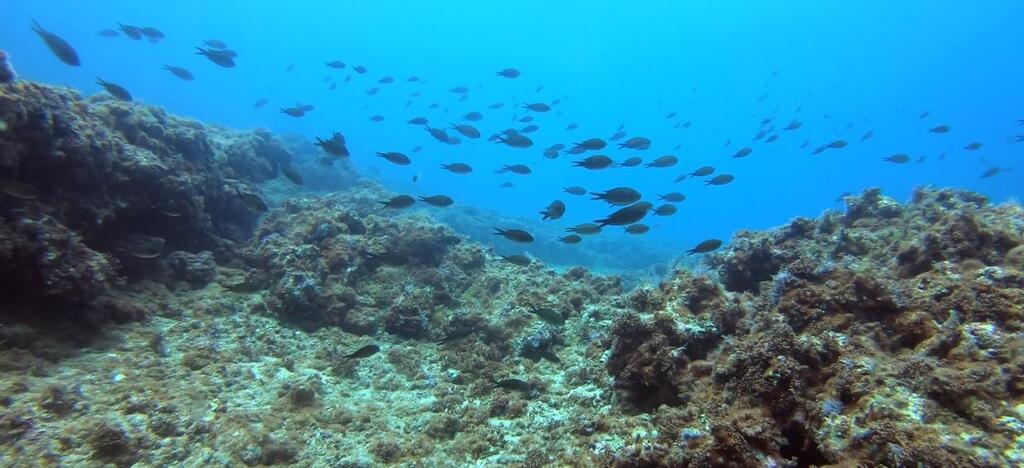

Rosh Hanikra-Achziv Marine Nature Reserve
(Photo: Omri Yossef Omessi, Israel Nature and Parks Authority)
8 View gallery
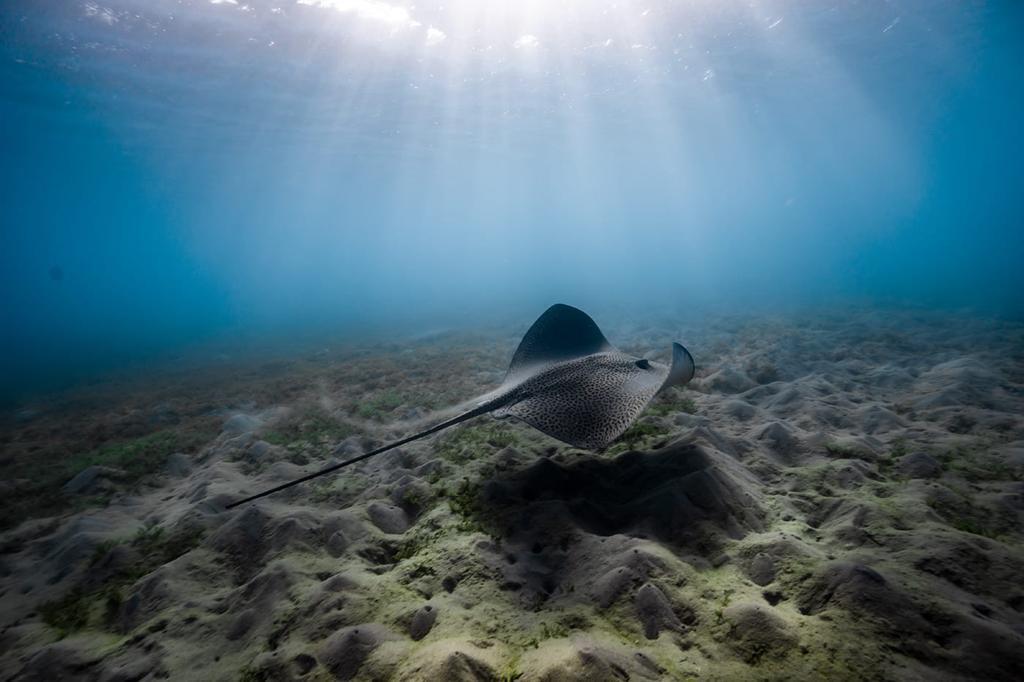

Rosh Hanikra-Achziv Marine Nature Reserve
(Photo: Omri Yossef Omessi, Israel Nature and Parks Authority)
Why do we need marine reserves?
Unlike the well-known beaches in central Israel, the entire stretch of the sea north of Haifa Bay consists of rocky terrain that is not covered in sand, and is not affected by the sand that the Nile River supplies to most of Israel's coastline. These rocky areas of the Mediterranean Sea facilitate the settlement of invertebrates, which attract larger fish and predators, thus creating a rich food web around the rocky formations.
A significant amount of fishing in Israel, both recreational and mercantile, takes place in this rocky habitat, for sought-after fish species like groupers, meagres, and seabream are found here. In the absence of fishing regulations and marine nature reserves, the rich rocky environment could become an underwater "desert" devoid of life, due to the extraction of key organisms from the food web, primarily as a result of intensive fishing activity.
"The Mediterranean Sea is characterized by marine flora and fauna, unique underwater landscapes, and fascinating maritime archaeology, when on the other hand, it is being exploited both as a fishing ground and for coastal and maritime infrastructure, putting its future at risk," said Raya Shourky, Director of the Israel Nature and Parks Authority.
"Marine nature reserves worldwide play a central role in preserving and restoring marine ecological systems by protecting breeding grounds and the animals and plants that inhabit them. Large, well-managed, and carefully monitored marine reserves are the primary and most significant way to ensure the health and functioning of our marine environment today and for future generations."
The Rosh Hanikra-Achziv Marine Nature Reserve has successfully preserved a rich underwater rocky environment for years, where fish species and sessile organisms thrive in quantities and sizes that are hard to find in other non-protected coastal sites in Israel.
The Israel Nature and Parks Authority explain that the success of the reserve stems from its large space, which expanded following its recent declaration, as well as strict monitoring, enforcement, broad public support for the reserve, and regular scanning surveys that provide updates on its condition.
The reserve is the area with the highest concentration of cartilaginous fishes species in Israel (13 species), and it is also home to the largest population of various groupers, including the dusky grouper, the mottled grouper, and the golden grouper. Additionally, it harbors a large population of the rare and unique Mediterranean slipper lobster, along with a variety of sea anemones, sea slugs, sea urchins, sea cucumbers, and numerous other fish species.
"As a result of the reserve's declaration, consistent monitoring and enforcement are in place to protect the natural values of the reserve from illegal fishing, pollution, and other damages," explained Eyal Miller, Director of the Northern Sea Region at the Israel Nature and Parks Authority.
"These natural values are part of the underground abundance found in the reserve - and visitors, whether diving, snorkeling, or kayaking, can enjoy a vibrant underground marine landscape and a rich biological diversity that is hard to find in unprotected areas. The public is invited to visit the reserve while adhering to the regulations detailed in the signage placed along its shores."
8 View gallery
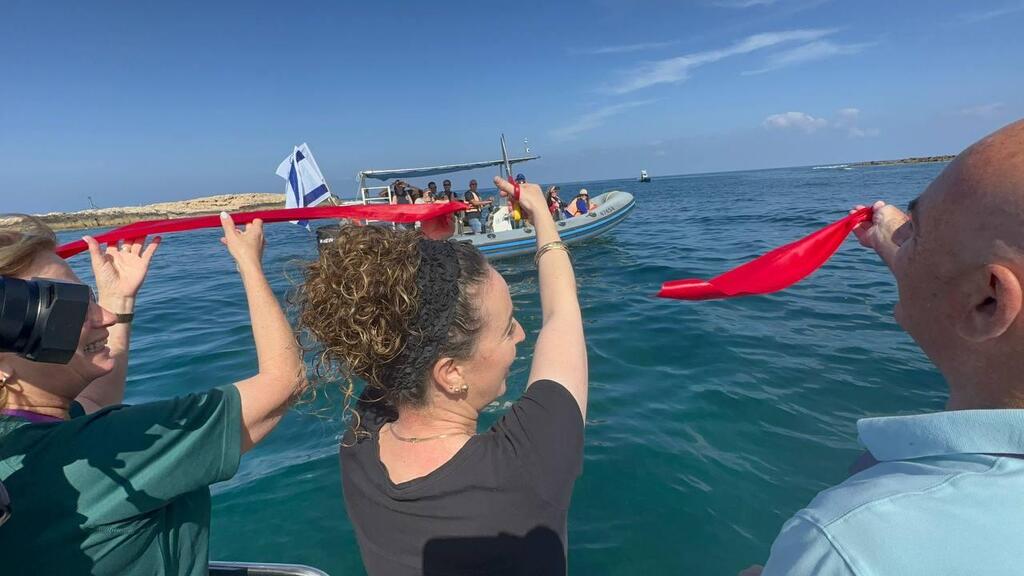

Idit Silman at the Rosh Hanikra-Achziv Marine Nature Reserve
(Photo: Shlomit Shavit, Israel Nature and Parks Authority)
Environmental Protection Minister Idit Silman said, "The declaration of the Achziv Marine Nature Reserve is another step towards our goal of reaching 30% of marine nature reserves. I am keen on advancing more organized reserves in our deep waters, in our territorial waters, and in the exclusive economic zones. The arrival of the Mediterranean monk seal Yulia, who joined us in recent weeks, emphasized the understanding that there is a genuine need for well-organized reserves that provide a safe environment for the animals."
Swimming, diving, kayaking, or SUP (stand-up paddleboarding)
Visitors of the Rosh Hanikra-Achziv Marine Reserve can enjoy various water activities. The reserve includes excursions such as scuba diving, kayaking, SUP boarding, surfing, open-water swimming, snorkeling, and free diving. Guided tours are also available for exploring the underwater marine life in the shallow waters, and for those looking to explore the depths of the reserve there are several authorized companies that offer jet ski tours in the designated waterway.
Entering the water within the reserve is permitted only at the designated beaches: Achziv National Park Beach, Beitzet Beach, Achziv-Club Med Beach, and Banana Beach. Independent water activities within the reserve are only allowed using non-motorized vessels such as kayaks, SUP boards, windsurfers, etc.
Moreover, visitors can explore the beautiful coastline with its rocky cliffs and pleasant coves on foot. There is also a national park where you can find numerous picnic areas and impressive remains of an ancient fishing village. Those interested in camping can stay overnight in the designated campsite, which is managed by the Nature and Parks Authority.
8 View gallery
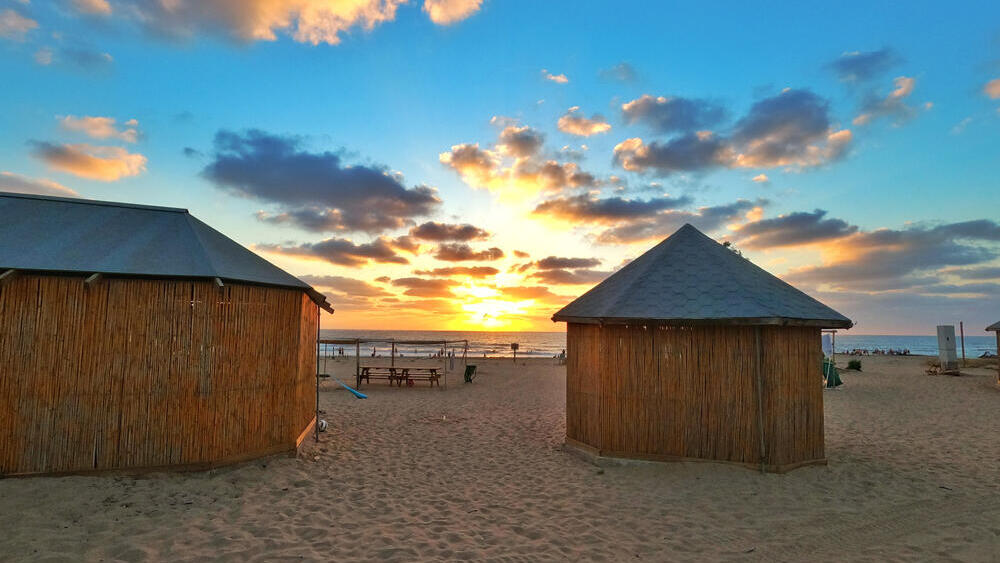

The campsite at the Achziv beach
(Photo: Yaniv Cohen, Israel Nature and Parks Authority)
Among the diving and water sports clubs operating in the reserve, "Putsker diving club" offers high-speed boat trips from Nahariya to Rosh Hanikra with prices ranging from 55 to 120 NIS (depending on the route), guided dives (220 NIS per person, not including equipment), and equipment rental.
"The Rosh Hanikra Sea Center" offers guided ecological kayaking trips to the Rosh Hanikra Grottoes and nearby islands, at the cost of 350 NIS for a group of up to three participants (an additional 100 NIS per participant for groups of four or more). For bookings, contact Udi at 052-3798610.
The Indigo Diving Club offers, among other things, snorkeling trips to the Achziv islands for 130 NIS per participant in a group of ten or more. They also provide guided dives from the reserve's dive sites for certified divers, costing 220 NIS (not including equipment, which is an additional 60 NIS).
Other diving clubs operating in the reserve include "Gali Yam Achziv" (specializing in team-building days for employees), "Trek-Yam Achziv," and "Litzlol."
The inauguration of the new reserve is part of the "Adam and Yam Month" (Man and Sea Month) initiative by the Nature and Parks Authority. Every June, activities promoting awareness and conservation of the sea and its natural wonders in Israel take place.
Important to take note:
- Permitted activities within the reserve include swimming, snorkeling, free diving, diving from non-motorized vessels (kayaks, SUP boards, windsurfers, etc.).
- Entry into the water is allowed during the bathing season and only at designated beaches when lifeguard services are operational.
- Approaching the coastal islands and cliffs should be avoided within a distance of less than 150 meters.
- Fishing within the marine area of the reserve and on the islands is prohibited. Fishing from the shore is prohibited from the Ma'apil Memorial and northward.
- Tourist boats with permits are allowed to navigate in a designated route at a distance of 1.4 km from the shore.
- Motorized vessels within the nearest 2 kilometers from the shore, along the entire reserve, are restricted to a defined entry and exit route only, ensuring the safety of water sports enthusiasts enjoying the reserve's abundance.
- Anchoring within the entire reserve is prohibited, except with the coordination and approval of the Nature and Parks Authority, and except for regulated boating activities.


